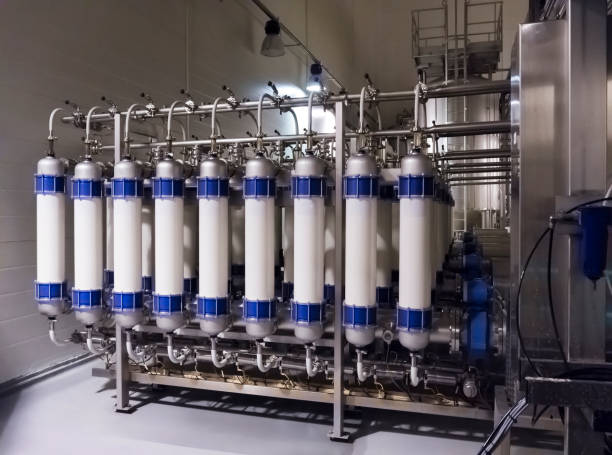Clean and safe drinking water is essential for a healthy life. However, due to increasing pollution and contamination, regular tap water may not always be safe to drink. This is where water purification technologies like ultrafiltration (UF) come into play. Ultrafiltration is a powerful method that effectively removes harmful impurities while retaining essential minerals. But what exactly is ultrafiltration, and how does it help purify your water?
Understanding Ultrafiltration
Ultrafiltration is a type of membrane filtration that uses a semi-permeable membrane to separate particles based on their size. It is capable of removing suspended solids, bacteria, viruses, and other pathogens from water without the use of chemicals.
The pore size of the UF membrane typically ranges from 0.01 to 0.1 microns, which is small enough to trap most contaminants but large enough to let water molecules and essential minerals pass through. This makes UF systems ideal for households, commercial use, and even industrial applications.
How Ultrafiltration Works
The UF process is simple yet highly effective:
Water enters the system and passes through a pre-filter that removes large particles such as dirt and sand.
The water then flows through the UF membrane, which filters out bacteria, protozoa, and some viruses.
Clean water comes out, free from contaminants but still containing healthy minerals like calcium and magnesium.
Unlike reverse osmosis (RO), UF does not require electricity or high pressure to operate, making it more energy-efficient and environmentally friendly.
Key Benefits of Ultrafiltration
Chemical-Free Purification: Ultrafiltration does not use chlorine or other harmful chemicals, making it a safer option.
Retains Essential Minerals: Unlike RO systems, UF does not strip water of beneficial minerals.
Low Maintenance: UF membranes are easy to clean and last a long time with minimal maintenance.
Cost-Effective: With no need for electricity and lower operating costs, UF systems are affordable for most households.
Eco-Friendly: Because it doesn’t generate wastewater like RO systems, UF is a more sustainable option.
Where Is Ultrafiltration Used?
Ultrafiltration is used in various settings, including:
Homes for drinking water purification.
Schools and hospitals where clean water is crucial for hygiene and health.
Industries, especially food and beverage manufacturing, where water quality directly affects product safety.
Municipal water treatment to improve water quality on a large scale.
Is Ultrafiltration Right for You?
If your water supply is generally low in total dissolved solids (TDS) but contains bacteria or other pathogens, a UF water purifier is an excellent choice. However, if your water has high TDS or heavy metals, a combination of UF with RO might be more suitable.
Conclusion
Ultrafiltration is a reliable, eco-friendly, and cost-effective way to purify water. Whether for home or commercial use, it offers a safe solution for ensuring that your drinking water is free from harmful contaminants while retaining the minerals your body needs. Investing in a UF system can lead to better health, lower costs, and a cleaner environment.


Leave A Comment